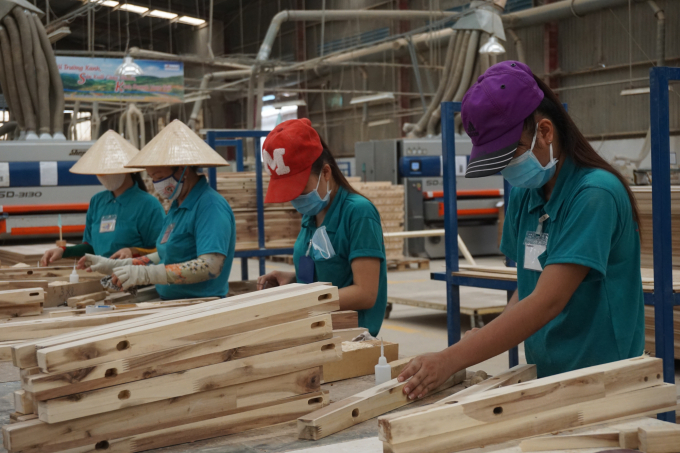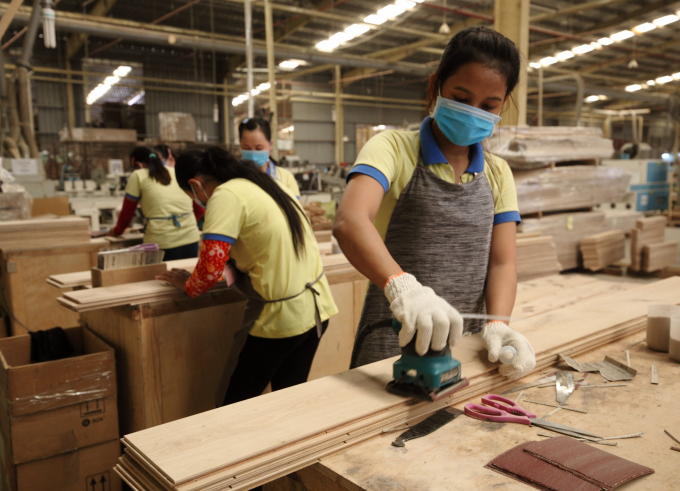November 28, 2025 | 01:01 GMT +7
November 28, 2025 | 01:01 GMT +7
Hotline: 0913.378.918
November 28, 2025 | 01:01 GMT +7
Hotline: 0913.378.918

In the first 9 months of 2020, the management authority of Convention on International Trade in Endangered Species of Wild Fauna and Flora (CITES) received 113 dossiers via the national one-door portal. Among those, 108 cases have been resolved. Photo: TCLN.
Convention on International Trade in Endangered Species of Wild Fauna and Flora (CITES) is an international agreement which aims is to ensure that international trade in specimens of wild animals and plants does not threaten their survival.
Accordingly, all import, export, re-export and introduction of species covered by the Convention have to be authorized through a licensing system.
So far, the issuance of CITES permits in Vietnam have been conducted effectively through the national one-door portal, according to the Vietnam Administration of Forestry (VNFOREST), Ministry of Agriculture and Rural Development.
Since July 1, 2020, Viet Nam CITES Management Authority, VNFOREST has received 113 dossiers through the national one-door portal. Accordingly, 108 cases have been resolved, 103 permits have been granted and 5 dossiers are being processed.
This is a prime example of the application of information technology in VNFOREST’s administration reform. Besides, the organization also makes good use of e-office and other software, while constantly updating database in order to better their services.
Besides the use of online platform, VNFOREST also strives to improve their administrative procedures by organizing meetings with locals and businesses in order to quickly find out the obstacles that they are encountering, especially in terms of logging and harvesting non-timber forest products, and thereby assisting them in resuming and stabilizing production and operation, especially given Covid-19 pandemic.
Regarding public finance, details of budget spending have been updated on the Treasury and Budget Management Information System (TABMIS).
In addition, the state budget expenditure of 2020 was reviewed and implemented while that of 2021 has been estimated and submitted to the Ministry of Agriculture and Rural Development for overall planning.
VNFOREST has also conformed to the regulation on in-house spending and public property management while ensuring efficient spending.

In the next three months of 2020, VNFOREST will continue to leverage the application of e-office, software, national one-door portal and in-house assessment through ISO system. Photo: TCLN.
As part of the administrative reform program, in the next three months of 2020, VNFOREST will continue to leverage the application of e-office, software, national one-door portal and in-house assessment through ISO system.
Besides, the organization will also carry on to develop legal documents, legal plans, while promoting dissemination of legal knowledge and implementing 2020’s inspection plans.
The Peer Assessment Rating or PAR Index plan will also be utilized to assess and better VNFOREST’s performance.
VNFOREST will also carry out the project of strengthening the organizational structure, which involves staff downsizing, efficiency improvements and mechanism renewal. Trainings are expected to provided, in order to improve the staff competence.
In terms of public financial management reform, VNFOREST will continue to estimate the expenditure effectively and disburse the budget as planned. Regulation on in-house spending and public property management will be also satisfied.
Author: Nguyen Huan. Translated by Meagan Phan. Edited by Duc Huy.

(VAN) After the institutional merger, Da Nang possesses significant forest-carbon reserves and is proactively engaging in the carbon market, creating a new revenue stream.

(VAN) An Giang strengthens communication against IUU fishing, increases inspections and sanctions, and is determined to remove the EC’s “yellow card” while developing a sustainable fisheries sector.

(VAN) As green transition becomes a global trajectory, Viet Nam’s biggest challenge is not only technology and models, but how to ensure that capital flows reach the right beneficiaries.

(VAN) The Ministry of Agriculture and Environment must spearhead the construction of green governance, spanning decision-making processes and investment standards to policy evaluation mechanisms.

(VAN) The Agriculture and Environment sector of Khanh Hoa has achieved numerous milestones over the past 80 years, contributing significantly to the goal of establishing the province as a centrally governed city by 2030.

(VAN) Viet Nam is entering the pivotal period of 2025-2030, moving toward the formulation of the Remote Sensing Law, which will establish a legal foundation for the development of national digital data.

(VAN) The agricultural sector is finalizing the strategic framework for emission reduction, setting the goal of sharply cutting methane and 403.7 million tons of CO2 equivalent and moving toward Net Zero by 2050.